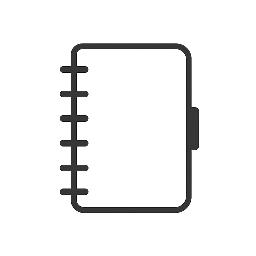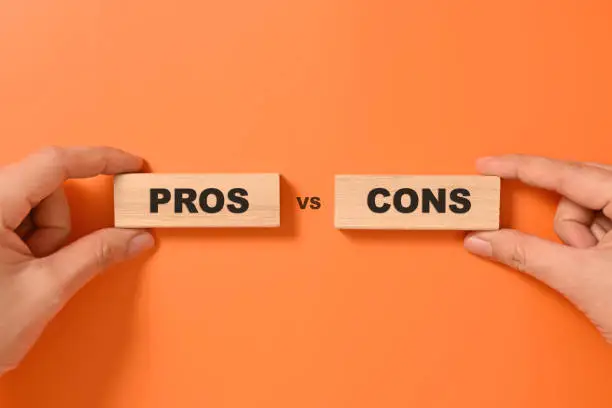When you’re short on cash and your next paycheck is days away, payday loans might seem like a quick fix. They’re fast, easy to get, and promise immediate relief from financial stress. But before you jump in, it’s important to understand both the benefits and the serious drawbacks of these short-term loans.
In this guide, we’ll break down the pros and cons of payday loans, how they work, and what alternatives you might want to consider before signing on the dotted line.
What Are Payday Loans?
A payday loan is a short-term, high-interest loan, usually for a small amount (often $100 to $1,000), designed to be repaid by your next payday.
They are commonly:
- Available from storefront lenders or online platforms
- Approved with minimal requirements (such as proof of income and ID)
- Funded quickly, sometimes within 24 hours
Sounds convenient, right? Let’s explore the upside first.
✅ Pros of Payday Loans
1. Fast Access to Cash
If you’re dealing with an emergency — like car repairs, medical bills, or avoiding late rent fees — payday loans offer instant cash, sometimes within hours.
Why it matters: In a financial pinch, speed can be crucial. Most banks can’t match this level of urgency.
2. No Credit Check Required
Many payday lenders don’t run a hard credit check, making them accessible to people with poor or no credit history.
If your credit is damaged, this might be one of the few loan options available to you.
3. Easy Qualification
To qualify, you usually only need to:
- Be 18+
- Show proof of income (pay stub or bank statement)
- Have a checking account
- Provide identification
No lengthy paperwork, interviews, or waiting games.
4. Convenience and Accessibility
With online payday lenders available 24/7, you can apply from anywhere — even from your phone.
There are thousands of physical locations and websites, so getting a payday loan is incredibly simple.
5. Useful in Extreme Emergencies
If you’re facing eviction, utility shutoff, or medical treatment delays, a payday loan could prevent a bigger crisis, assuming you’re confident you can repay it quickly.
❌ Cons of Payday Loans
1. Extremely High Interest Rates
The average payday loan APR can exceed 400%, compared to a typical credit card APR of 15%–30%.
Let that sink in: Borrowing $300 might cost you $345 in just two weeks.
That’s a steep price for fast money.
2. Short Repayment Period
You’re usually required to repay the full loan amount — plus fees — within two weeks or by your next payday.
Many borrowers struggle to pay it back in full, leading to rollover loans and even more debt.
3. Debt Cycle Risk
Many borrowers end up taking out multiple payday loans to cover previous ones. This creates a dangerous cycle of borrowing that can be hard to escape.
You can get trapped paying interest over and over without making progress.
4. Hidden Fees and Fine Print
Payday loans often come with extra charges:
- Late fees
- Rollover fees
- Origination fees
And let’s be real — many lenders bury the details in fine print, so you may not understand the full cost until it’s too late.
5. Can Hurt Your Bank Account
Many payday lenders require access to your checking account to withdraw repayment. If you don’t have enough funds:
- Your account could be overdrawn
- You may face overdraft fees from your bank
- You could damage your banking relationship or even lose your account
6. Not a Long-Term Solution
Payday loans don’t fix underlying financial problems. They provide a bandage, not a cure, and can often make things worse in the long run.
Who Typically Uses Payday Loans?
According to research, common borrowers include:
- People living paycheck to paycheck
- Individuals with poor credit
- Those without access to traditional loans
- Workers in low-wage jobs
- People facing sudden, unexpected expenses
It’s a solution often born out of necessity, not choice.
Should You Use a Payday Loan?
Only consider a payday loan if:
- It’s truly an emergency
- You have no other borrowing options
- You are 100% certain you can repay it on time
- You’ve read the terms carefully and understand all costs involved
Even then, proceed with caution.
Safer Alternatives to Payday Loans
Before taking out a payday loan, check these options:
1. Borrow from Friends or Family
While not always easy, this option may come with zero or low interest — just be sure to agree on clear repayment terms.
2. Ask for a Paycheck Advance
Some employers offer paycheck advances or short-term employee loans. It’s worth asking your HR department.
3. Use a Credit Card (Responsibly)
Even with a high APR, credit cards are generally cheaper than payday loans — especially if you can pay it off within a month.
4. Seek Help from a Local Credit Union
Credit unions often provide small personal loans with far lower interest rates and better terms than payday lenders.
5. Explore Emergency Assistance Programs
Local nonprofits, charities, and churches often offer help with:
- Rent
- Utilities
- Food
- Medical bills
This assistance is often free or much less costly than taking out a loan.
6. Try a “Payday Alternative Loan” (PAL)
Offered by some credit unions, PALs are specifically designed to provide quick cash with:
- Lower interest
- Longer repayment periods
- No rollovers allowed
Tips If You Already Have a Payday Loan
If you’ve already taken a payday loan and feel stuck:
- Don’t take another loan to pay it off
- Talk to the lender — some may offer extended repayment plans
- Contact a nonprofit credit counselor for help
- Look into debt consolidation loans if your credit allows
FAQs: Payday Loans
Q1: Can a payday loan affect my credit score?
Usually no, unless the debt is sent to collections. Then it could hurt your score.
Q2: Are payday loans legal in every state?
No. Some states heavily regulate or even ban payday lending. Always check your local laws.
Q3: Can I go to jail for not repaying a payday loan?
No, you can’t be jailed for unpaid debts — but lenders may take legal action or send your account to collections.
Q4: What’s the average payday loan amount?
Most payday loans are between $300 and $500.
Q5: How can I break the payday loan cycle?
Seek help from a credit counselor, explore consolidation options, and create a strict repayment plan to escape the debt spiral.
Conclusion
Payday loans are fast and easy, but they come with a high price tag and serious financial risk. While they can be helpful in extreme emergencies, they’re rarely the best option.
The bottom line? Don’t take a payday loan unless you’ve exhausted all safer alternatives and have a clear plan to pay it off on time.
And if you’ve already gone down that path — don’t panic. There are resources and support available to help you get out of the payday loan trap and back on solid financial ground.


Leave a Reply